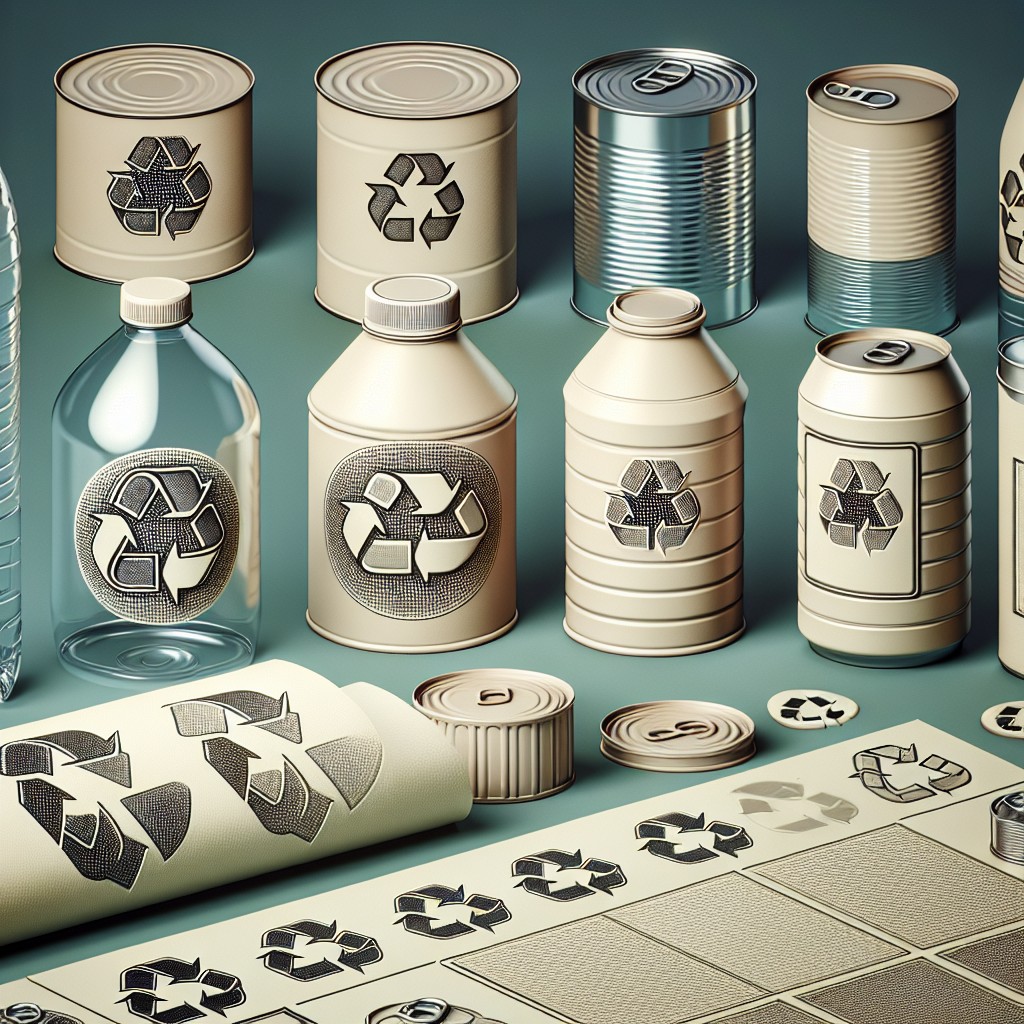Last updated on
Glass can indeed be placed in home recycling bins, provided it is not broken or contaminated with other materials.
Key takeaways:
- Glass can be placed in home recycling bins if not broken or contaminated.
- Recycling glass conserves energy and reduces waste sent to landfills.
- Container glass like jars and bottles are widely accepted for recycling.
- Non-recyclable glass items include ceramics, light bulbs, and Pyrex.
- Repurpose, contact waste management, or find local businesses for non-recyclable glass disposal.
Why Should You Recycle Glass?
Recycling glass is critical for both environmental conservation and economic efficiency. As a fully recyclable material, glass can be repurposed indefinitely without loss of purity or quality. This recycling process consumes considerably less energy compared to manufacturing new glass from raw materials. By recycling just one glass bottle, you save enough energy to power a computer for 25 minutes, showcasing a substantial energy-saving potential.
Moreover, glass recycling reduces the volume of waste sent to landfills, which in turn lowers greenhouse gas emissions. Since glass is a heavy material, its presence in the waste stream significantly contributes to the overall tonnage that requires transport to disposal sites, thereby increasing emission levels. By diverting it away from the waste stream, we mitigate its environmental impact.
Preserving natural resources is another compelling reason to recycle glass. Every ton of glass recycled conserves more than a ton of the raw materials needed to create new glass, such as sand, soda ash, and limestone. In essence, the simple act of placing your glass containers in the recycle bin stands as a contribution to resource conservation and environmental stewardship.
Types of Glass You Can Recycle
Understanding which glass items are acceptable in your recycling bin is crucial for effective recycling programs. Generally speaking, container glass—like jars and bottles used to package food and beverages—are the most widely accepted. These items are designed to be recycled numerous times without loss of quality. Clear, green, and brown glass containers are usually good to go for recycling.
Additionally, you might come across “return for deposit” bottles and jars in some regions, which are also recyclable and can even earn you a little cash back. Always make sure to check the label for the recycling symbol to confirm.
However, before you toss these items into the recycling, remember to give them a quick rinse to get rid of any food residue—this helps maintain the quality of the recycled material. It’s also helpful to check with your local recycling program for specific instructions, especially when it comes to metal lids, as the guidelines can vary.
On the other hand, items like drinking glasses, window panes, or mirrors have different melting points and chemical compositions, so they shouldn’t be mixed with container glass. Keeping the right type of glass in the recycle bin leads to more efficient recycling processes and better-quality recycled products.
Types of Glass You Cannot Recycle
While many glass items are recyclable, some are not due to their composition or contamination with other materials. For instance, ceramics and ovenware, despite resembling glass, are not processable in standard recycling equipment. The same goes for light bulbs and window panes; their specific chemical treatments preclude them from mingling with bottle glass. Additionally, mirrors and glassware, such as drinking glasses, are usually treated with chemicals that prevent them from being recycled with container glass. Pyrex, famed for handling high heat, also falls into the non-recyclable category because of its altered thermal properties.
Another notable non-recyclable type is the glass that shatters into small shards, which can pose a hazard at recycling facilities. Moreover, glass contaminated with food, liquids, or other substances can compromise entire batches of recyclable glass, leading to increased contamination rates. Always be aware of your local recycling guidelines to ensure you’re not accidentally doing more harm than good when discarding glass items.
How to Dispose of the Glass That Can’t Be Recycled?
While conventional recycling centers often refuse certain types of glass, such as ceramics or heat-resistant glassware, alternative disposal methods are available to ensure environmental responsibility.
First, consider repurposing or upcycling these items. Creative uses for non-recyclable glass can range from turning old vases into planters to using chipped glasses for mosaic art projects. Engaging in such activities not only prolongs the life of these materials but also mitigates waste.
For items too damaged or unsafe for repurposing, you should contact local waste management facilities for guidance. Some areas have specialized programs for materials that are traditionally non-recyclable, which may include collection events for hazardous or tricky waste like certain glass types.
Additionally, look into local businesses or community groups that might reuse or refurbish non-recyclable glass. For example, there may be artists or educational programs in need of materials for crafting or learning purposes.
Lastly, if all else fails and you must dispose of non-recyclable glass, be sure to do so safely. Wrap the pieces in newspaper or place them in a box labeled “broken glass” to prevent harm to sanitation workers and avoid potential accidents. Always confirm with your local waste management protocol to ensure you are adhering to area-specific guidelines.
Ways to Recycle Glass
Recycling glass isn’t as daunting as it may seem, and a few simple steps can ensure you’re contributing to a sustainable cycle of reuse:
1. Rinse and Clean: Empty and rinse your glass containers to remove food residue or liquids that can contaminate the recycling process.
2. Sort by Color: Some recycling programs ask that you sort glass by color – clear, green, and brown – as each is melted down in separate batches.
3. Check with Local Facilities: Before adding glass to your recycling bin, confirm with local waste management rules as guidelines can vary widely.
4. Consider Drop-off Locations: If curbside pickup isn’t an option, look for local drop-off centers designated for glass.
5. Remove Non-Glass Items: Lids and caps often need to be removed, as they’re typically made of metal or plastic and require a different recycling stream.
6. Explore Bottle Deposit Programs: Some states encourage glass bottle return by offering a deposit scheme, incentivizing recycling and reuse.
Remember, proper recycling conserves resources and minimizes environmental impact. Each small effort contributes to the bigger picture of sustainability.
FAQ
Can you put glass in normal recycling bin?
Yes, you can put glass bottles and jars in your normal recycling bin.
Do you put glass bottles in the recycle bin?
Yes, glass bottles and jars can be placed in the recycling bin, but other glass items like ceramics or pottery are not suitable for your local recycling program.
How do you dispose of old glassware?
To get rid of old glassware safely, wrap them in newsprint or bubble wrap, secure them in a solid container marked ‘broken glass’ for the awareness of waste handlers, or alternatively, confirm whether your local recycling facility accepts glassware or inquire for disposal guidelines specific to your locality.
Is glass recyclable or non recyclable?
Indeed, glass is 100% recyclable and can be endlessly repurposed without any degradation in quality.
What happens to the glass after it is put in the recycling bin?
After it’s placed in the recycling bin, glass is collected, sorted by color, cleaned, shattered into cullet, melted down, and then molded into new glass products.
Is there specific types of glass that cannot be recycled?
Certain types of glass, such as tempered glass, ceramic glass, windows, mirrors, light bulbs, and crystal, cannot be recycled due to their different melting points and chemical compositions.
Can broken glass pieces be placed in the recycle bin?
No, broken glass pieces cannot be placed in the recycle bin as they pose safety threats to waste management workers and may also contaminate other recyclables.
Related reading:
Table of Contents

